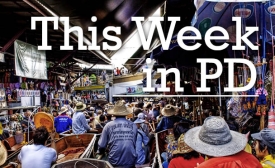china
Publishing group Pearson announced the sale of the Financial Times Group to Japanese media firm Nikkei, a move that caused concern among many Chinese. The Financial Times has been one of the most influential Western media outlets in its coverage of Chinese business. Moreover, compared to other Western outlets, the newspaper has a friendly relationship with the the Chinese government.
China's capital might seem an unlikely place to find American football, but interest among China's youth is growing, according to Shen Yu, marketing director for Great Stone Gridiron. The private football club was Beijing's first when it was founded three years ago. Around 500 children participate, including about 150 in tackle football programs.

News headlines showcased this week how nations utilize cultural diplomacy and other soft power assets to brand themselves abroad.
Ambassador of China to Italy Li Ruiyu highlighted the most recent example of fruitful bilateral exchange, the Expo Milano 2015, which since its opening on May 1 has hosted a series of important Chinese events, from the China National Day to the Beijing Week, Shanghai Week and many other activities organized by different regions of China.
![Photo courtesy of Paul [sic], via Flickr Creative Commons](https://uscpublicdiplomacy.org/sites/default/files/styles/275x168/public/uploads/Web%20-%2020090131%20-%20Chinese%20New%20Year%20London%20-%203249432875_d0ce538cba_o%20-%20Paul%20%5Bsic%5D.jpg?itok=E5ntNo2e)
“Rising Soft Powers: China” is the second title in our e-book series.
But with 998,000 overseas foreign workers in 2014, according to the Chinese Ministry of Commerce, China has slowly come to realize that operating globally means indeed greater risk and the requirement therein to protect both its foreign nationals and overseas investments. To this end, China has increasingly felt the pressure of being in the middle of potentially hostile territory throughout the Middle East and Africa.
Young Chinese chefs will be learning Italian traditions and recipes from Italian Gambero Rosso culinary experts. Culture and food diplomacy will be showcased at Expo Milano 2015 after five agreements signed by the two countries for culture and creative industries.
Officially, the Confucius Institute (CI) is a non-profit educational initiative which partners with schools across the globe to provide Chinese language instruction, scholarships for students to study in China, and to promote greater understanding and appreciation of Chinese culture.







